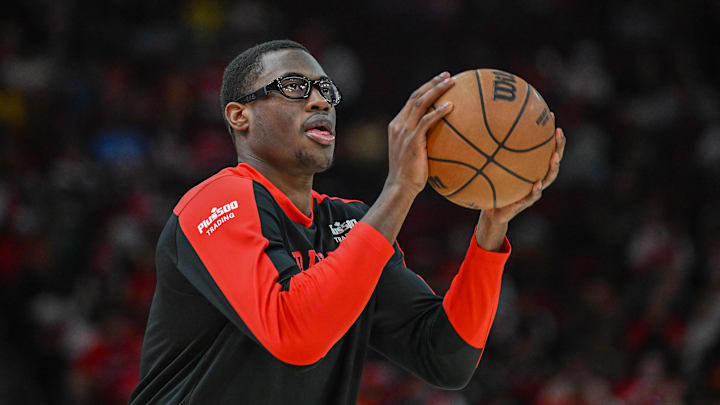A year ago, the Chicago Bulls made their biggest free-agent splash by signing former Indiana Pacer Jalen Smith to a three-year, $27 million deal, fresh off a career-best season in which he shot 59.2 percent from the field and 42.4 percent from three.
On top of his impressive efficiency metrics, Smith averaged 9.9 points and 5.4 rebounds in just 17.2 minutes per game. The former lottery pick showed he could make a real impact in limited action, cementing his case as an ideal reserve five.
Yet Smith didn’t resemble the player he’d been in Indiana once he got to Chicago. The 6-foot-10 big man opened strong, scoring in double figures in three of his first appearances, but soon slipped back into the form that had defined his first season in Indiana.
Jalen Smith must rediscover his three-point shot
He closed his first season in Chicago, averaging 8.2 points and 5.6 rebounds in 15 minutes per game, while shooting 46.6 percent from the field and 32.4 percent from three. His true shooting percentage sat above league average, but his sub-33 percent accuracy from deep left little reason for confidence. In fact, Smith recorded the worst three-point percentage among Bulls to appear in at least 30 contests.
The concern with Smith is that, given his size and position, his role is limited. Unlike players such as Matas Buzelis or Ayo Dosunmu, he can’t easily reinvent his shot profile. At 6-foot-10, he’s largely relegated to spot-up threes, which he also converted at just 32.4 percent.
Smith’s three-point shooting is emerging as a clear swing skill. He’s topped 40 percent just once, while shooting under 33 percent in every other season. That track record suggests he isn’t a reliable shooter—though his sophomore year at Maryland and his 2023–24 campaign tell a different story.
At 25, Smith isn’t a lost cause, but another poor shooting season could diminish his role despite the Bulls' long-term investment. He already faces competition from Zach Collins, who outperformed him last season. Collins brings defensive value, though his perimeter shooting remains a weakness.
Theoretically, Smith brings a different dimension than Collins as a potential three-level scorer, but he has to prove it after a disappointing 2024–25 season. Moving forward, Billy Donovan needs to see Smith hit threes at a respectable rate. If he does, his minutes won’t be in doubt, and the prospect of Smith and Collins coexisting in the reserve frontcourt becomes realistic.
